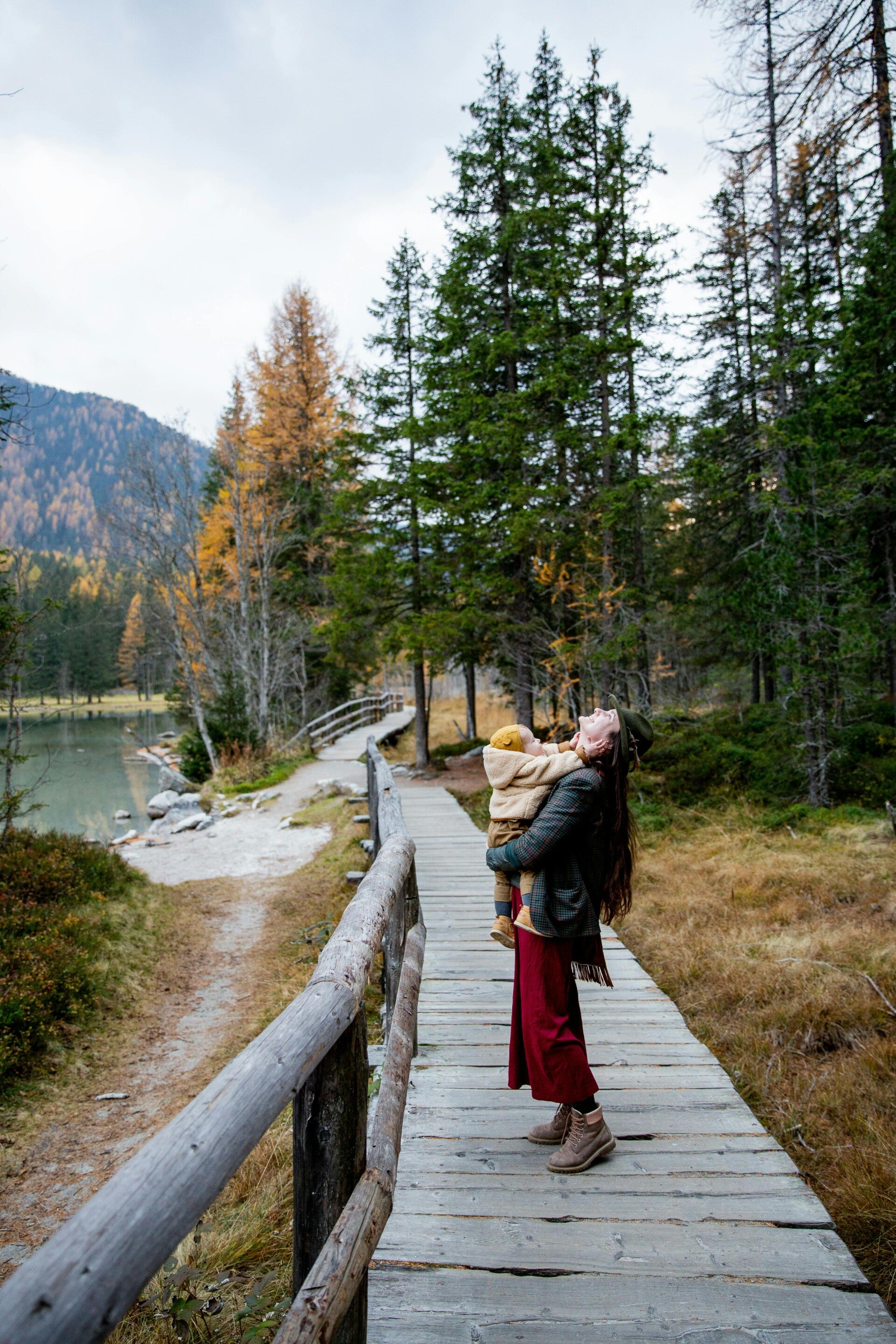
As a childminder I have worked with many different children, families, and educational approaches. I’ve seen technology, toys, and trends change rapidly, but one thing remains constant: nature never goes out of style. The outdoors has a way of drawing out the very best in children. It captures their imagination, strengthens their bodies, calms their minds, and fuels their curiosity all without screens or flashing lights.
In my setting, spending time in nature is an important part of our week. We may not be out in every type of weather, but when the sun is shining, the air is fresh, or the day is just too beautiful to stay indoors, you’ll find us exploring the world beyond the four walls. I’ve seen first-hand how nature supports the holistic development of a child, helping them to grow physically, emotionally, socially, and cognitively, all in one experiences.
The Holistic Benefits of Nature for Children
Nature offers endless opportunities for physical development. Running across grass, hopping from stone to stone, or balancing along a fallen log helps strengthen muscles, improve coordination, and develop a sense of balance. Even something as simple as bending down to pick up an interesting leaf improves fine motor control and hand-eye coordination. These are skills that build the foundation for writing, self-care, and sport later in life.
Cognitively, nature is a living, breathing classroom. Watching a caterpillar munch its way through a leaf, spotting how the colours of the trees change through the seasons, or counting the petals on a flower all provide natural learning opportunities. These experiences nurture observation skills, problem-solving, early maths concepts, and scientific thinking. It’s learning that feels like play and that’s exactly how children absorb it best.
The emotional wellbeing benefits are equally powerful. The calmness of being outside, surrounded by fresh air and natural beauty, helps children regulate their emotions and reduces stress. Nature teaches resilience too. Sometimes the wind blows down the tower of sticks they have worked so hard to build, or the snail they were watching disappears into its shell. These small but meaningful moments help children understand patience, adaptability, and perseverance.
Socially, outdoor play often inspires teamwork and communication. Whether they’re building a den together, deciding which way to go on a nature walk, or sharing their bug discoveries, children are learning how to cooperate, negotiate, and celebrate each other’s ideas. And then there’s creativity one of nature’s greatest gifts. A stick becomes a sword or a magic wand, a leaf becomes a tiny boat, and a patch of grass becomes a stage for an entire imaginary world. In nature, there are no limits to what something can be.
Philosophies That Celebrate Nature
Two well-respected educational approaches place the natural world at the heart of learning.
Maria Montessori, the Italian physician and educator, believed that children learn best through real-life experiences. She saw the outdoors as an essential part of developing independence, observation skills, and respect for the environment. In her words, “There must be provision for the child to have contact with nature; to understand and appreciate the order, the harmony and the beauty in nature.” This belief still resonates strongly in early years education today.
Forest School philosophy, which began in Scandinavia, takes a similar view, placing great emphasis on hands-on learning in natural environments. Through exploration, play, and carefully supported challenges, children build self-confidence, independence, and resilience. Every trip outdoors becomes an opportunity for growth, and every season offers new experiences.
My Love for Nature in Childminding
Nature is not an occasional treat in my childminding setting it is woven into our routine. We enjoy regular nature walks, where the children collect leaves, twigs, and feathers to examine or use in creative projects back at home. Bug hunts are a firm favourite, and we’ve made many memorable “discoveries” together, from shiny ladybirds to the slow but fascinating journey of a worm we once named “Wiggly.”
One of the most joyful activities we share is walking barefoot in the garden. The children love the different sensations, the tickle of grass, the cool touch of soil, the warmth of sunlit paving stones. It’s a simple but powerful sensory experience that helps them feel grounded and connected to the earth beneath their feet. We also plant seeds together, care for them, and watch them grow, turning the passing weeks into a living lesson about patience, responsibility, and the cycle of life.
Why Nature Will Always Have a Place in Childhood
In a world where children are often surrounded by screens, schedules, and structured activities, nature offers something rare and precious, freedom. It allows children to move at their own pace, follow their curiosity, and learn without even realising they’re learning. It develops resilience, empathy, creativity, and problem-solving, life skills that will serve them well long into adulthood.
As a childminder, I have the privilege of seeing these moments unfold every week. The sparkle in a child’s eye when they spot a ladybird, the pride in their voice when they tell me they can balance along a log “all by themselves,” the concentration on their face as they watch ducks swimming by, these are the milestones that don’t always make it into formal reports, but they are the heartbeat of true learning.
Nature may not be the newest trend, but it is the oldest and most effective teacher our children will ever have. And that’s why I will always make sure the children in my care have plenty of chances to step outside, explore, and let the world around them spark their minds and fill their hearts.
To learn more about how Montessori philosophy click here
To learn more about The Forest School click here